Are you addicted to technology? The signs you need a digital detox REVEALED!
Take the quiz to find out...
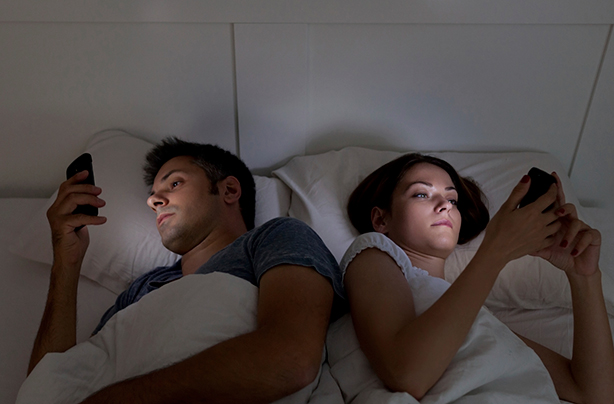
UK adults now spend an average of 8 hours 41 minutes a day on screens, which is more time than they spend sleeping.
With the average smartphone user checking their phone 150 times a day and logging 1.72 hours a day on social media alone, it's clear to see our digital addiction is getting out of hand. If you think you might be too heavily reliant on technology then we've got some questions for you, to see how you measure up against the masses. Ready to have a go at our quiz to see how addicted you are? Simple click through the pictures below, while answering the questions, to find out.
Good luck!
How addicted to tech are you?
[apester]57555da4fc117159524356bd[/apester]
Six steps to digital detox
If you didn't quite get the results you wanted from the quiz above then why not try doing a digital detox? It's easier than you might think to limit your online usage and with these simple steps you can start today.
Time to Log Off is the home of digital detox, and promotes a healthy balance between life online and the offline world. They're encouraging people to disconnect regularly from their digital devices and reconnect with the offline world through digital detox retreats and resources. Here's their digital detox checklist, everything you need to disconnect in the comfort of your own home.
#1 Get an analogue alarm clock
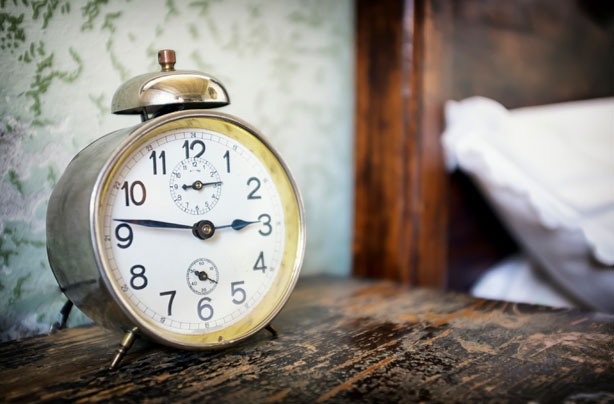
Many of us sit in bed and scroll through Twitter before setting our phone alarms for the next morning. But while using a smartphone as an alarm might seem easy and convenient, the downside is it's all too easy to hit 'snooze'. Allowing ourselves to go back to sleep during 'snooze time' results in sleep inertia, which causes impaired alertness and performance on a range of daily tasks. Getting an old-fashioned alarm clock and putting it on the other side of the room will stop this, making you feel more awake and productive throughout the day. It also stops the kind of aimless night time scrolling on social media that keeps you awake until the early hours.
GoodtoKnow Newsletter
Parenting advice, hot topics, best buys and family finance tips delivered straight to your inbox.
#2 Remove social media apps from your smartphone
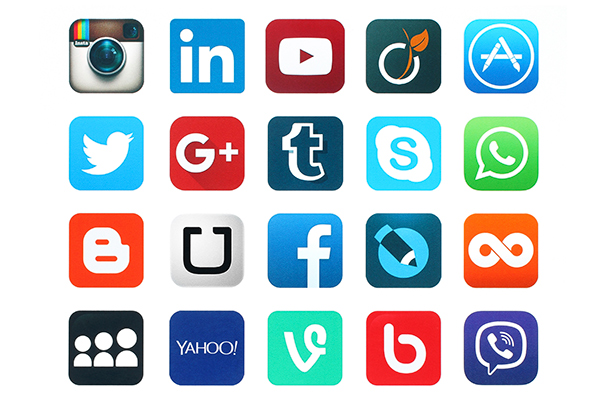
Social media is where the majority of UK smartphone users spend the bulk of their digital time, endlessly scrolling as soon as they wake up, throughout the day and just before bed. We're the FOMO generation and checking social media on an hourly basis enables us to feel we're not missing out. But removing social media apps from your phone, and only checking them from your desktop or iPad will significantly cut back on your hours online, and it's unlikely you'll miss much when you're away from your desktop.
#3 Set no-phone zones
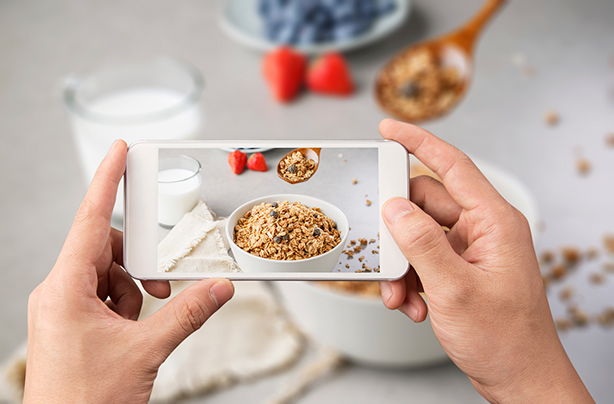
Setting clear no-phone zones at home is an ideal way to help the whole family cut down on screen time. The meal table is one simple zone to set. Make all meals tech free which both reduces screen time and also encourages interaction with family and friends, you'll enjoy your food more too. The bedroom is also a good place to make a no-phone zone. Your smartphone could be one of the reasons you're not sleeping well, after all. The artificial blue light emitted by devices is proven to suppress the release of melatonin. Melatonin makes us more alert just before bedtime; resulting in us feeling tired the next day.
#4 Switch-off work email after hours
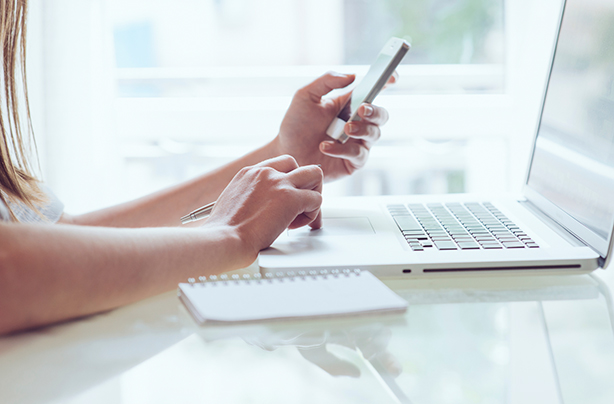
As soon as you leave the office make a pact to leave work behind and disable push email notifications from your phone. You may think that it's more productive to reply now rather than wait until work tomorrow but you'd be wrong. Research shows that when we multi-task, our productivity levels decrease. Most importantly, removing email from your smartphone will enable you to reduce your overall time spent on devices when at home.
#5 Disable smartphone push notifications
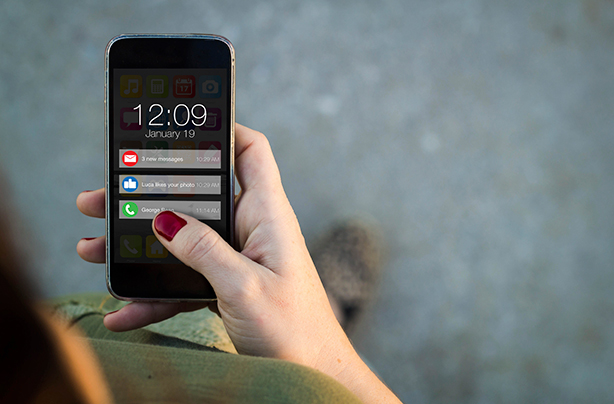
But it's not just notifications from work email that can be a problem. Push notifications from all sorts of apps are one of the biggest digital distractions. Even when we think we've successfully ignored that smartphone ping in fact the moment we hear our phone beep or vibrate in our pocket we feel the impulse to check it, regardless of what we're doing. By simply turning off as many app push notifications as possible you'll reduce the amount of times you check your phone each day and in turn be less distracted, simple yet effective.
#6 Set a regular no-tech day
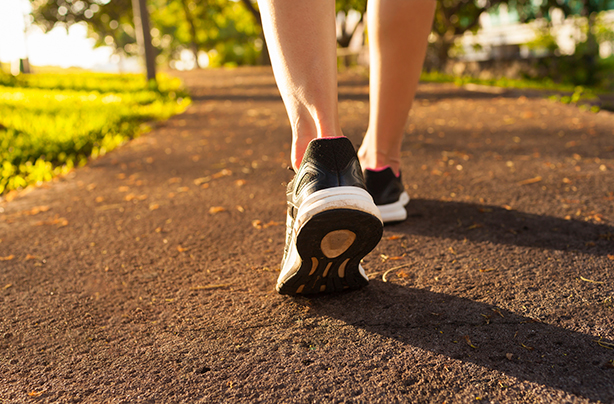
As well as setting physical no-phone zones at home, dedicating a specific time period, such as a particular day, for no-tech is a very effective way to reduce your time online and kick-start a longer digital detox. We recommend dedicating Sunday as your digital free day. Spend the time with friends and family going on a mindful walk or taking part in sport.
The phrase 'digital detox' can sound intimidating, but it doesn't have to be daunting to cut down on screen time. Completing this digital detox checklist doesn't mean you'll be stepping away from all things tech forever, it just means you'll have a healthy balance between your life online and your life offline. The effects that reducing your tech time can give are so great you might even find yourself logging-off more often.
Trusted, informative, and empathetic – GoodToKnow is the ultimate online destination for parents. At GoodtoKnow, our mission is 'simple': we're trying to make sense of parenthood. On the site, you'll find everything you need for a happy, healthy family life. Our huge archive of content includes more than 18,000 articles and 1,500 how-to videos. These include expert-backed advice features on parenting, dealing with relationship changes after having a baby, self-care for mums and managing your family finances. We also feature tried-and-tested product reviews and buying recommendations for every stage of family life - from prams and Moses baskets to birthday gifts and top toys.